
+91 8095511877

+91 8095511877
Parkinson's disease is a progressive neurological disorder that affects millions of people in the world. Approximately two out of every thousand people are affected by this condition. People over 50 are more at risk. In most cases, the first sign is a slight tremor in your hand. As time goes on, you will feel stiffness and a slowing of all movements.
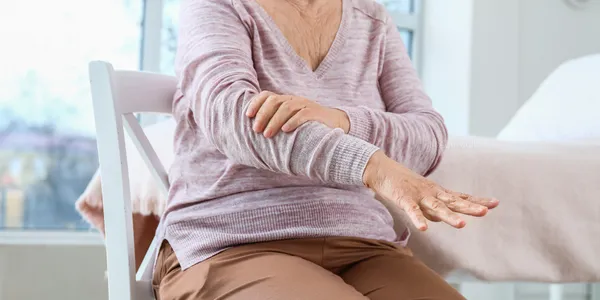
Ayurveda refers to Parkinson's disease as "KAMPA VATA". 'Kampa' means shaking or tremor in the Sanskrit language, and 'Vata' refers to the energy of movement. Ayurvedic treatment for Parkinson's disease is very effective. The average treatment period is 21 days, which can vary as per the condition of the patient and the stage of the disease.
The three main goals of Ayurvedic medicine for Parkinson's disease are:
So far, doctors have not found the exact cause of Parkinson's disease. A few factors apply to most people suffering from this disease. Some of the common ones are
Here are some things that can make you more likely to get Parkinson's disease.
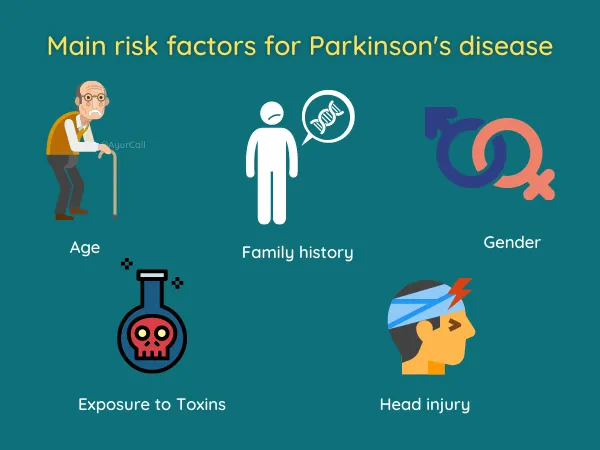
It could take a while for signs to show up. It's also possible that they're different for each person. Here are a few of the most popular ones:
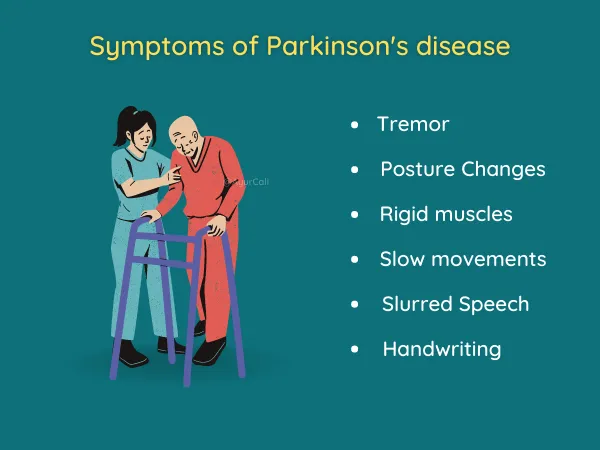


In Ayurveda, a person is treated as a whole, not just the disease. In other words, it fixes the problem at its source instead of just treating the signs. Ayurveda talks about three kinds of energy forces, called doshas, that live inside of us. Air, Fire, Water, Earth, and Space are the five elements that make up these doshas. The three doshas are
The Apana Vayu (air) controls how the body gets rid of body waste. This vayu builds up in the body as we age and worsens over time.
Parkinson's disease is a Vata problem in Ayurveda. Stress, lack of sleep, and bad food choices can all lead to Vata imbalance in our bodies. These things make Apana Vayu worse. So, the vayu flows back into the body's bloodstream instead of leaving it. This situation also leads to constipation, one of the main signs of Parkinson's disease.
As per Ayurveda, there is a close connection between your gut and the brain. Because of this, many doctors think of the gut as our second brain.
The first step in the treatment is to reduce the imbalances in the gut and brain functions. The main aim is to control Agni or "the digestive fire".Agni has two levels.
Ayurvedic treatment for Parkinson's disease aims to fix these two Agnis first. After correcting those, the Ayurvedic treatments that strengthen and refresh the body come next.
Panchakarma is the basis for most of these treatments. Here are some of the most important steps:
Snehana: The Ayurveda therapists will apply medicated oil over your body as per the advice of the doctor
Swedana: a healing steam bath that cleans and heals the body.
Vasti: A medicinal enema, or Vasti, removes toxins from the body.
The most common Ayurvedic medicines used to treat Parkinson's disease are Ashwagandha and Bala. They keep the nervous system clean and healthy. Some other common medicines are from velvet beans, flaxseed, and Triphala.
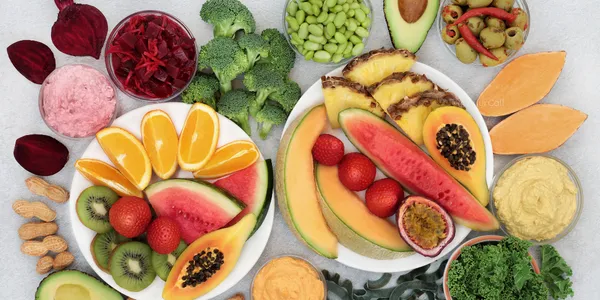
Diet is an important part of all Ayurvedic treatments. For long-term success, you need to make changes to your diet. One should include foods that calm the senses in the diet. When it comes to treating Parkinson's disease, a diet high in Omega-3 fatty acids and antioxidants, like fresh veggies, fruits, and fish, will work very well.
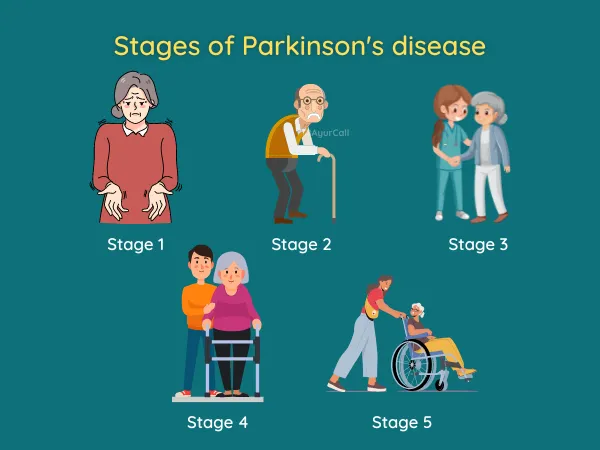
Parkinson's disease is an illness that gets worse over time, so the signs and symptoms change and get worse over time. There are five steps in general.
Stage 1: In this stage, the effects are mild, and it is hard to tell what is wrong. There may be minor changes in stance and tremors in one hand. However, you will be able to do all of your daily tasks on your own.
Stage 2: At this point, the effect is still small but becoming more apparent. On both sides, there will be tremors. You may have a stooped stance and will have trouble walking. You can still do the things you need to do without help. But it might look like some jobs are taking longer than usual.
It could take a few weeks or months to move from stage 1 to stage 2.
Stage 3: Movements become much more slower now. Loss of balance is another thing that can make it hard to walk without falling. Even though you can still do things on your own, you will have to work harder for that.
Stage 4: This is the most critical stage, as the situation has now become much worse. Your ability to move around will be very limited. You will now need help with your daily tasks.
Stage 5: At this point, the person spends all their time in bed and needs nursing care.
Many other problems can come up because of Parkinson's disease. Some of the common ones are
Depression: Parkinson's disease can make people feel anxious and sad
Eating difficulty: Eating is hard for some people because they have trouble swallowing food, which makes it hard for them to eat. People tend to drool a lot and have a lot of spit in their mouths
Sleep: People with Parkinson's disease often have trouble sleeping
Pain: Some people have pain all over their bodies which can be very discomforting
Sex drive: A low sex drive is a problem that a lot of people with Parkinson's disease have.
Levodopa, which raises dopamine levels, is the most popular drug to treat Parkinson's in modern medicine. Some of the side effects of these medicines can be very bad. Also, the dose will have to get bigger over time. When symptoms get really bad, the best option is DBS (Deep Brain Stimulation) surgery. However, this is a complex brain surgery that needs expert doctors and facilities.
If you do a careful study and review, you will find genuine Ayurveda hospitals for Parkinson's disease that can offer high-quality care. There are hospitals that even have Parkinson's disease as their key focus. Some of the best centers are
Ayurcall can get you a free treatment plan from these hospitals. This can help you decide on the right hospital. For the treatment plan, you may need to provide
Doctors may also ask for a short video showing the movements of the person. This will help them understand the current state of the patient. Choosing the right hospital will help you get the best out of Ayurvedic treatment for Parkinson's disease.
Frequently Asked Questions
Is there any treatment for Parkinson's disease in Ayurveda?
What is the success rate of Ayurveda treatment for Parkinson’s disease?
Can Parkinson’s disease be prevented?
Treatment Plan for Parkinson's Disease
Happy Medical Stories

Sabine (Germany)

Hatim Banjar (Saudi Arabia)
Related Videos
